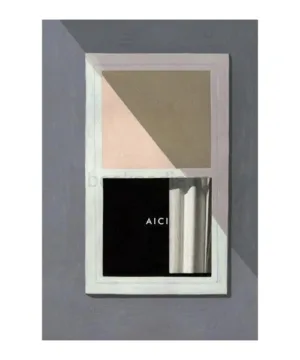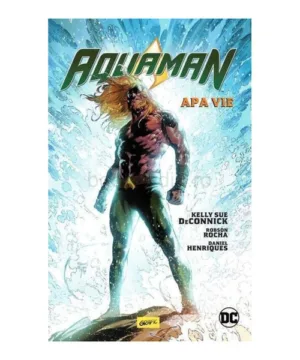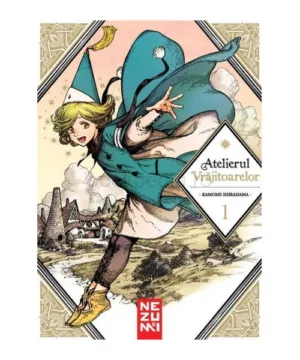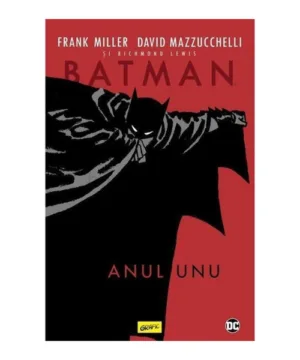LANDSCAPE ARCHAEOLOGY ON THE NORTHERN FRONTIER OF THE ROMAN EMPIRE AT POROLISSUM
66,50 lei
| Authors | Coriolan Horatiu Opreanu, Vlad Andrei Lazarescu |
|---|---|
| Publisher | MEGA |
| Year | 2016 |
| Pages | 354 |
Informații suplimentare
| General | |
|---|---|
| Authors | Coriolan Horatiu Opreanu, Vlad Andrei Lazarescu |
| Publisher | MEGA |
| Year | 2016 |
| Others | |
| Identification | |
| ISBN-13 | 9786065437876 |
| Format | |
| Pages | 354 |
Descriere
„The frontiers of the Roman Empire, over 5000 km long, stretch from the Atlantic coast of Scotland, along the Rhine and the Danube, also enclose the Banat region and Transylvania, then going down along the Oriental Carpathians to the Black Sea; from the southern coast of the Black Sea they continue towards the Near East until the Red Sea; then, in North Africa, they line the edge of the Sahara desert until the Atlantic coast of Morocco. Over this entire area, visible traces of fortifications, roads and settlements are still preserved, but numerous monuments still lay hidden underneath the earth. Despite the fact that the Roman frontiers crossed regions with different relief and climate, they constitute a whole in that they were designed to protect Roman territories. The research of these monuments and the preservation policy regarding them was and is unequal in the various presentday states on whose territory traces of the Roman frontier are to be found. Consequently, in the ‘80s of the 20th century, the idea of globally protecting the Roman frontiers, viewed as a unitary monument, was met. In 1987, Hadrian’s Wall in United Kingdom was declared a UNESCO monument. It was followed in 2005 by the German-Raetian sector, on which occasion the UNESCO committee decided to set up the ‘Frontiers of the Roman Empire’ site.
(…)
This project through its complexity generated an interdisciplinary approach of the proposed subject stimulating such future attempts in the archaeological research field. By using the latest technical methods of non-destructive investigation the project did not damage the stratigraphy of the archaeological site obtaining instead a high amount of data otherwise time consuming judging from the archaeological excavations perspective contributing also to the preservation of the cultural heritage.” – fragment din Introducere
Contents
List of Illustrations 7
List of Tables 13
Authors and Contributors 15
Acknowledgements 17
Introduction (Coriolan Horatiu Opreanu, Vlad-Andrei Lazarescu) 19
I
DEFINING THE ROMAN LIMES OF DACIA
Danut Petrea, Iuliu Vescan, Stefan Bilasco & Ioan Tantau
Natural landscape of the researched area 31
Coriolan Horatiu Opreanu & Vlad-Andrei Lazarescu
The limes as a contact zone between Orbis Romanus and Barbaricum 43
Coriolan Horatiu Opreanu & Vlad-Andrei Lazarescu
The province of Dacia 49
II
INTERDISCIPLINARY RESEARCH METHODS AND THE STUDY OF THE ROMAN LIMES IN DACIA POROLISSENSIS
Dan Stefan
Geophysical surveys and the reconstruction of the ancient landscape 115
Sorina Farcas, Ioan Tantau, Roxana Grindean, Andrei Marian Panait & Andrei Cosmin Diaconu
Palaeoenvironmental research methods 121
Stefan Bilasco, Iuliu Vescan, Ioan Fodorean & Raularian Rusu
GIS and Spatial Analysis 133
Anamaria Roman & Tudor-Mihai Ursu
Multispectral satellite imagery and airborne laser scanning techniques for the detection of archaeological vegetation marks 141
III
LANDSCAPES OF THE NORTH-WESTERN LIMES OF ROMAN DACIA
Ioan Tantau, Roxana Grindean, Andrei Marian Panait, Andrei Cosmin Diaconu & Sorina Farcas
Palaeoenvironmental reconstructions since 5000 BC 153
Roxana Grindean, Ioan Tantau & Sorina Farcas
Human impact and land-use since 5000 BC 165
Tudor-Mihai Ursu & Anamaria Roman
Ancient and present floristic, vegetation, and ethnopharmacological aspects regarding Porolissum area 173
Ioan Rus, Iuliu Vescan & Stefan Bilasco
3D Modeling using UAV and photogrammetric techniques 225
Anamaria Roman, Tudor-Mihai Ursu, Vlad-Andrei Lazarescu & Coriolan Horatiu Opreanu
Multi-sensor surveys for the interdisciplinary landscape analysis and archaeological feature detection at Porolissum 237
Coriolan Horatiu Opreanu & Vlad-Andrei Lazarescu
Remote Sensing at Porolissum: an archaeological perspective 263
Vlad-Andrei Lazarescu, Stefan Bilasco & Iuliu Vescan
Big Brother is watching you! Approaching Roman surveillance and signalling at Porolissum 275
Conclusions (Coriolan Horatiu Opreanu) 305
Bibliography 309
















